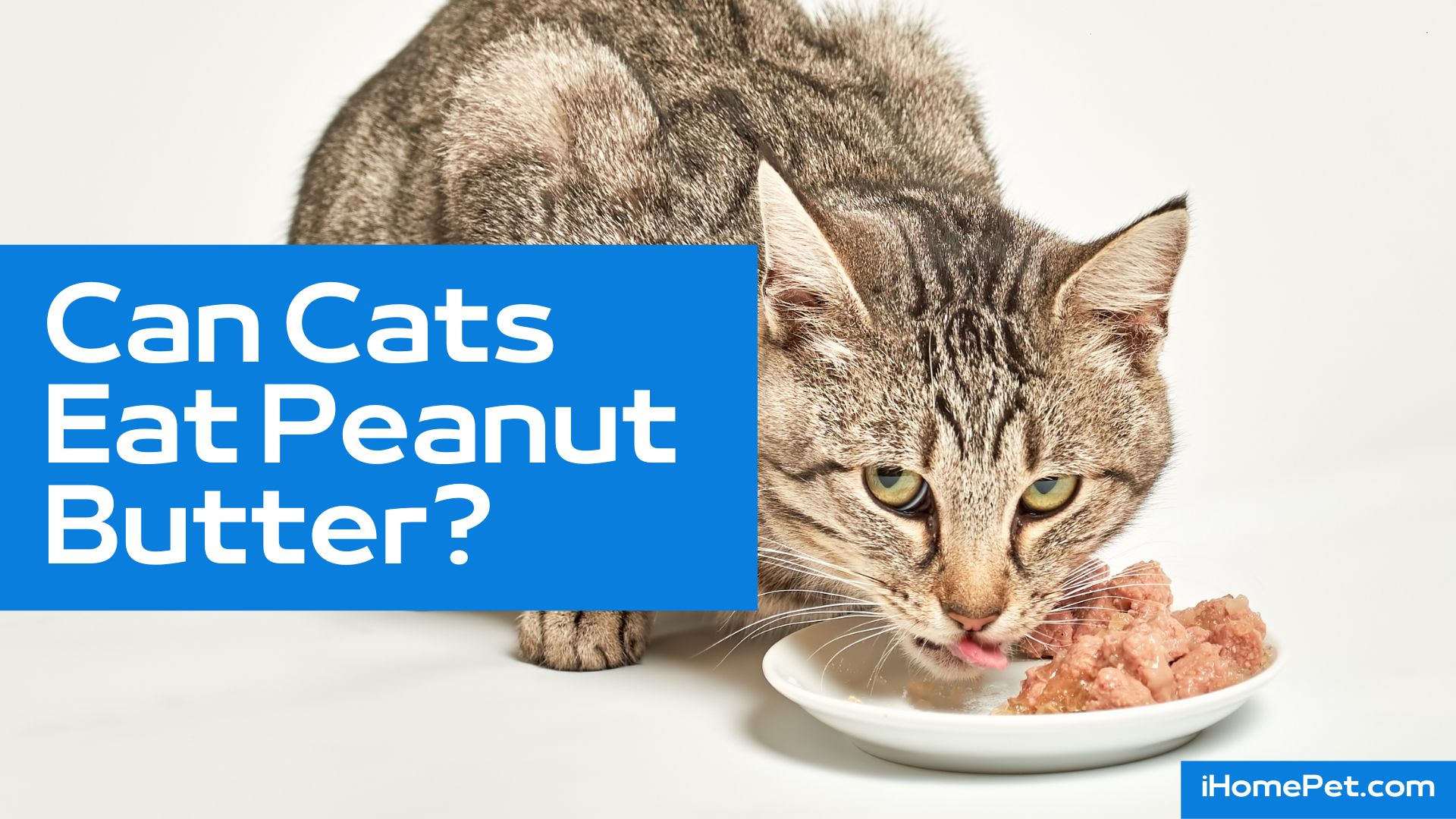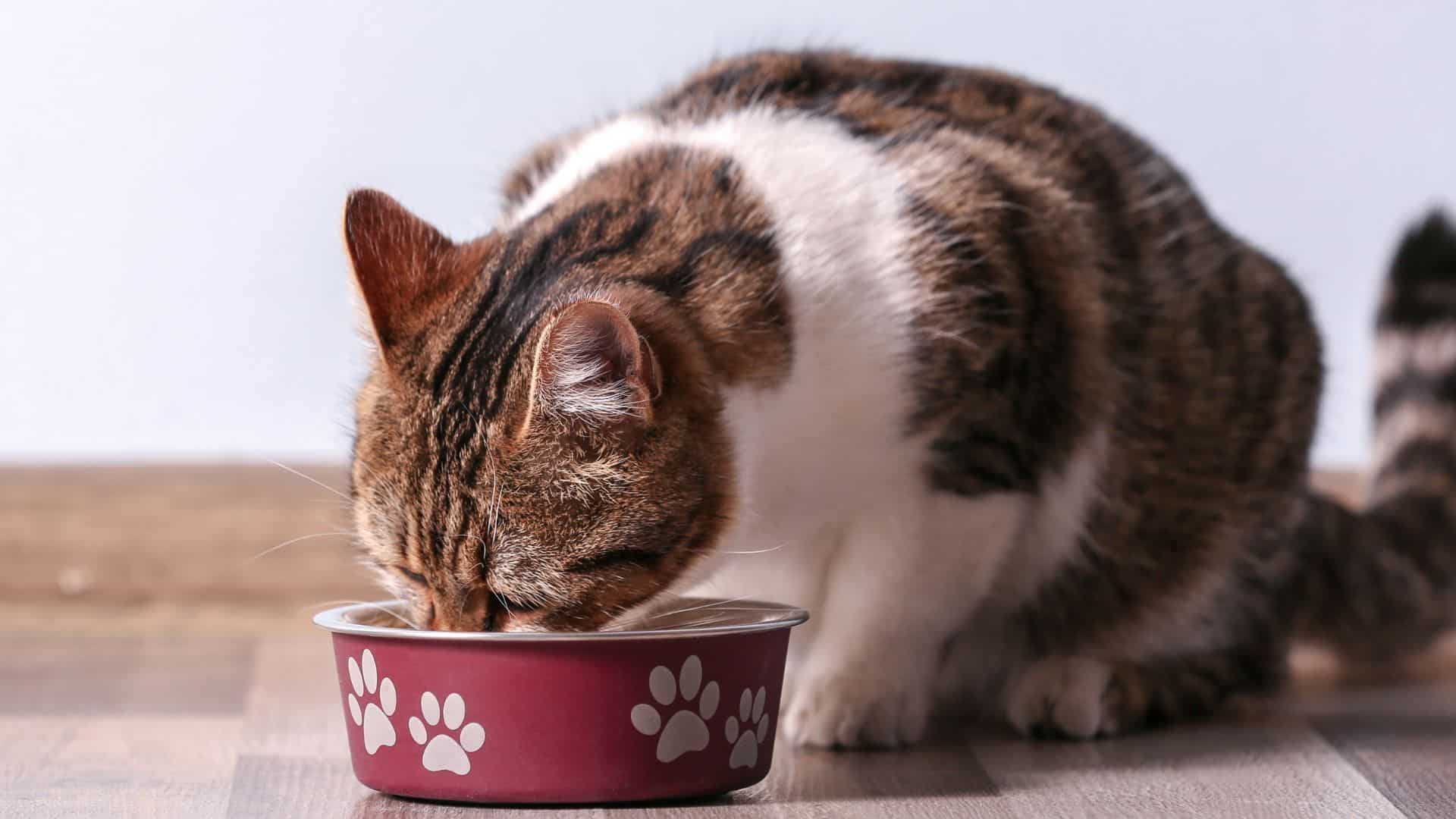Peanut butter, one of our favorite bread spread, normally attracts a lot of attention from cats. You may sometimes wonder, can cats eat peanut butter? Even thought peanut butter is not toxic for cats, as pet parents you should try to avoid giving your cat peanut butter.
Most peanut butters on the market do not provide any nutritional value, and they are filled with artificial additives that can be harmful to cats. Additionally, some kittens may have allergies or sensitivities to peanut butter that can cause digestive issues.
As adoring cat owners, we have developed a new trend these days of feeding human food to our feline companions during meal times. Some of us are oblivious to the fact that some of the human food could be harmful to the feline companion. Cats can comfortably eat most of our food that we give them though.
Can cats eat peanut butter?

Is peanut butter safe for cats? To find the answer to this, stay put and read along. All the right stuff you need to know will be discussed in detail in this article. Peanut butter as we all know is not only delicious but also oozes with essential nutrients to us humans. The nutty feel of the butter is enough to make your mouth water early in the morning.
The nutritional sucker punches it throws is ideal for any one person. Be it iron, magnesium, vitamin B6, Vitamin E, fats and oils are just some of the nutrients you can get from it.
But does your kitty really need all these? It has been mentioned about a thousand times in this blog that cats are pure carnivores. All they need for survival is proteins. All the others are just supplementary. Of the nutrients in peanut butter, there is none that would be of essence to our feline friends.
Is peanut butter bad for your cat?
Some of you even put it as “should cats eat peanut butter?” Cats will totally be fine when fed peanut butter in moderate quantities. They may enjoy it, but it would be just pointless.
Giving your cat a lick or two once in a while would not be toxic. But if you give the cat a whole teaspoon in a single sitting on a regular basis, then you are bound to intoxicate the kitten.
However, there are some problematic ingredients and toxic additives that can be found in some brands that can cause severe allergic reactions or even be fatal.
Cats with peanut allergies cannot eat peanut butter, as it can trigger allergic reactions. Additionally, peanut butter is high in fat and calories, so excessive consumption can lead to weight gain and potential health issues for cats.
It’s always best to consult with a veterinarian before introducing any new food into your cat’s diet to ensure their safety and well-being. Even a tiny amount, or if the cat licks peanut butter, can potentially cause gastrointestinal distress or allergic reactions.
Advantages of Giving Your Cat Peanut Butter
Your feline friends are meat eaters, and they love the taste of meat. However, introducing peanut butter to their diet can provide them with a range of benefits. Firstly, peanut butter is a good source of protein, which is essential for maintaining muscle mass and overall health.
Additionally, it contains healthy fats that can contribute to a shiny coat and improve skin health. There are instances where peanut butter may prove useful to your kitty. All is not doom. All is not doomed if your cat enjoys the taste of peanut butter and can safely consume it in small amounts.
Taking medication
For those of us who have tried to give our kittens some pills, we recognize the difficulty of making the cat swallow the pills. To make your life a little easier, you can conceal the pill with a pinch of peanut butter.
As the cat eats, he consumes the pill without even realizing it. This trick can be especially helpful for pets who are picky eaters or have a strong aversion to medication. However, it’s important to consult with your vet before using this method to ensure it is safe for your cat and won’t interfere with the effectiveness of the medication.
Nutritional benefits
The vitamins and proteins present in peanut butter provide small doses of essential nutrients to the cat. Although it is not much, it could be worth something. Also, peanut butter can be a good source of healthy fat for cats.
Mixing peanut butter with other ingredients that can provide nutritional value will enhance the overall nutritional benefits for the cat. For example, adding a small amount of cooked chicken or fish to the peanut butter can increase the protein content and provide additional vitamins and minerals.
Additionally, incorporating fruits or vegetables like mashed bananas or pureed pumpkin can offer fiber and other beneficial nutrients to support the cat’s overall health.
Health benefits
The fats and oils are said to be good for your cat’s fur. This is just speculative, though, as there is no concrete evidence to prove it. Your cat’s health will ultimately depend on various factors, such as diet, exercise, and overall care.
Mixing peanut butter with wet cat food can boost your cat’s diet and give them an extra dose of healthy fats and oils. While peanut butter can be a tasty treat for cats, it should be given in moderation due to its high calorie content.
Control the calorie count
Your cat’s calories can drastically increase if they are consuming too many treats or table scraps. It’s important to monitor their portion sizes and choose a balanced diet specifically formulated for cats to ensure they maintain a healthy weight.
Additionally, engaging them in regular exercise and playtime can help burn off excess calories and keep them active. Some animal products do not meet their nutritional needs, so adding things like peanut butter or other human foods to their diet may not be the best choice.
Potential Harms of Giving Your Cat Peanut Butter

In the list of toxic human foods for cats by the ASPCA, peanut butter is not one of them. This can relieve some of your worries. However, some cats do experience some side effects from consuming butter on a large scale. Look out for some of these side effects:
Obesity and weight gain
Your cat’s daily caloric intake will increase when consuming butter on a large scale, which can lead to obesity and weight gain. Added artificial sweeteners can upset the digestive system of your pet and cause gastrointestinal issues such as diarrhea.
Xylitol Poisoning
A cat eating peanut butter can experience xylitol poisoning, which can be life-threatening. Read the nutrition label and look for any artificial sweetener ingredients before giving any food to your cat.
Vomiting due to abdominal pain
Many peanut butters out there contain artificial sweeteners such as xylitol, which can cause vomiting due to abdominal health problems in cats. Even though peanut butter is generally safe for your feline friend, some ingredients, like the high fat content, can cause stomach upset and lead to vomiting due to abdominal health problems in cats.
Diarrhea or gastrointestinal upset
Many human foods can cause cats gastrointestinal issues and should be avoided. A small amount of sugar alcohol can lead to liver failure and should never be given to cats.
Indigestion or allergic reaction
If a cat eats peanut butter and gets an allergic reaction, it is important to seek veterinary attention immediately. Avoid occasional treats that have lots of empty calories and excess salt, as these can contribute to obesity and other health issues in cats.
Choking hazard
Feeding cats peanut butter in large quantities can cause excessive thirst in many cats and potentially lead to dehydration. The sticky consistency of the peanut butter can cause it to get stuck in your cat’s throat and block their airway, posing a serious choking hazard.
How much peanut butter can your cat eat?
This is assuming that your cat would love the peanut in the first place. If she does love a lick, just let her have the smallest possible quantity. Giving the cat a whole teaspoon of peanuts is not a very good idea. Obesity and diabetes would be a sure bet for your cat.
As obligate carnivores, cats have specific dietary needs that are best met through a balanced diet of meat-based proteins. While a small taste of peanut butter may not be harmful, it should not become a regular part of their diet.
Bottom line
So what is the way forward then? Can cats eat peanut butter ? Well technically yes, peanut butter is not toxic to your cat. The only problem arises in the amount you let her have. And since it is always very sticky, swallowing the butter would become an uphill task for the cat.
Too much of the butter causes diabetes and obesity in the cat. If you can avoid peanut butter, then do it. If your cat loves it, you can feed her in moderation.
Last Updated on 16/03/2025 by Karen Snow
Hi! I’m Karen and a certified dog lover. As a freelance writer and blogger, I do my best to squeeze in some time with my dogs, learning more about the way they act and how I can make sure that they continue to stay well-cared for by yours truly.
My dogs have helped me through a lot, and this is my way of giving back to them! Besides animals, I also love to travel and cook, having explored my country’s restaurants and unique places. Follow me as I show you all the amazing tips and bits of information I learn along the way about our furry friends!
